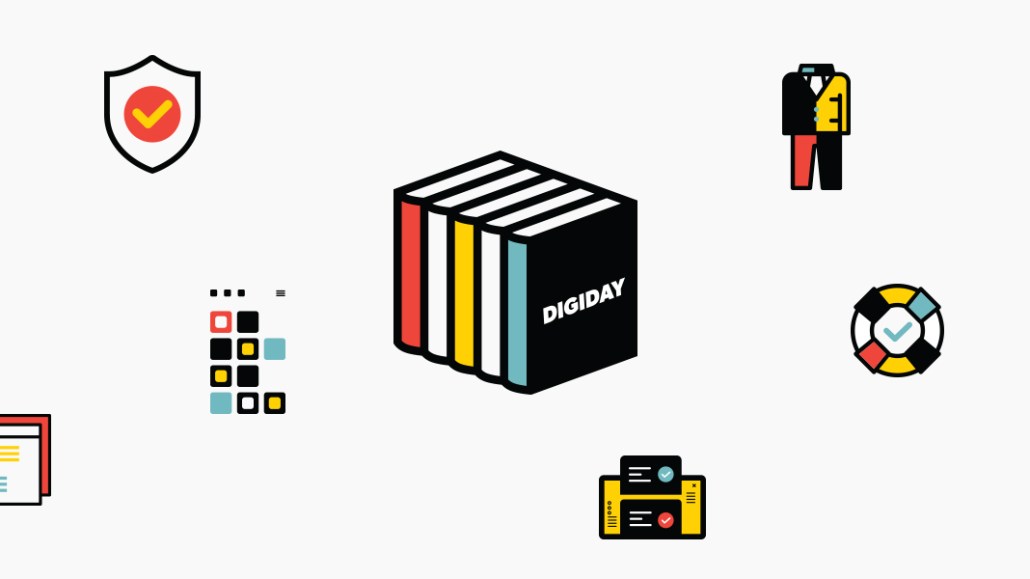Secure your place at the Digiday Publishing Summit in Vail, March 23-25

This article appears in the latest issue of Digiday magazine, a quarterly publication that is part of Digiday+. Members of Digiday+ get access to exclusive content, original research and member events throughout the year. Learn more here.
Meaningless jargon and lazy buzzwords have plagued the media and marketing industries for decades, and the problem only seems to be getting worse. With that in mind, we’re releasing the third edition of the Digiday Dictionary. Whether you’re trying to baffle someone into buying something they don’t need, decipher something your vendor told you, or simply cover up for having no idea what you’re talking about*, this guide will have you covered. (*Actual results may vary)
Ad exchange: Cheap ad space
Ads.txt: List of people we think we can trust
Agency of record: Scapegoat
Brand newsroom: Marketers with journalism degrees
Brand safety: Screenshots
Branded content: Native advertising that’s more expensive
Consent management platform: Something we say we use so we don’t get fined
Consultancies: Agencies with suits
Consumers: People
Data: Email addresses
Digital agency: Website sweatshop
Display: Banners
Engagement: Likes
Facebook Watch: Animal videos
GDPR: We’ve updated our privacy policy
In-house: Dedicated agency group
Long-form: 15 minutes, tops
Native advertising: Branded content
Pivot: Desperation
Podcast ad measurement: Discount codes
Premium video: Netflix
Privacy: An illusion
Publisher commerce: Amazon links
Social agency: Tweet sweatshop
Sponsored content: Text ad
Subscriptions: Last resort
Transparency: Insertion orders
Video audience measurement: A tax a publisher pays to take meetings with TV ad buyers
View views: Autoplay
Viewability: Bigger ads
More in Media

Why more brands are rethinking influencer marketing with gamified micro-creator programs
Brands like Urban Outfitters and American Eagle are embracing a new, micro-creator-focused approach to influencer marketing. Why now?

WTF is pay per ‘demonstrated’ value in AI content licensing?
Publishers and tech companies are developing a “pay by demonstrated value” model in AI content licensing that ties compensation to usage.

The case for and against publisher content marketplaces
The debate isn’t whether publishers want marketplaces. It’s whether the economics support them.





